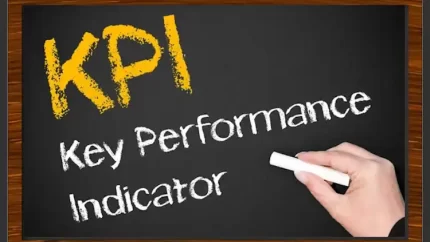Looking to take your business online? It’s time to choose the right e-commerce platform! With numerous options available, finding the perfect fit for your business may seem overwhelming. That’s why we’re here to help!

From user-friendly interfaces to customizable features, we’ll explore the key factors you should consider when deciding on the right solution for your business. So, let’s jump in and find the e-commerce platform that suits your needs!
Identifying Your Business Needs
When it comes to choosing the right e-commerce platform for your business, it’s important to first identify your specific goals and objectives. What are you looking to achieve with your online store? Are you focused on increasing sales, expanding your customer base, or streamlining your operations? Clarifying your goals will help you narrow down your options and find a platform that aligns with your business needs.
Budget constraints are another crucial factor to consider. Determine how much you are willing to invest in an e-commerce platform, taking into account any ongoing fees or additional costs that may arise. It’s important to strike a balance between finding a platform that meets your requirements and staying within budget.
Scalability is another important consideration, especially if you anticipate your business growing in the future. Assess the size of your business and evaluate whether the platform you choose can handle increased traffic and orders. Look for a platform that offers scalability and flexibility to accommodate your business’s growth. Think about how many products you plan to sell. Some platforms charge based on the number of products you have. So, whether you have just a few items or hundreds, it’s something to keep in mind when making your decision.
Platform Flexibility and Customization
Every business has unique needs, and it’s essential to assess the level of customization required for your online store. Consider how much control you want over the design and functionality of your website. Some platforms offer static templates, others may have drag-and-drop customization, while others provide more advanced customization options.
Integration with other systems and tools is another crucial aspect to consider. Think about the third-party tools or software you currently use or plan to use in the future, such as inventory management, email marketing, or customer relationship management (CRM) systems. Evaluate whether the platform you choose can seamlessly integrate with these systems.
In addition to current needs, it’s important to think about the future. Look for a platform that can adapt to your changing business requirements. Consider whether the platform allows for easy updates and modifications as your business grows and evolves.
User Experience and Design
User experience plays a significant role in the success of your online store. Assess the platform’s pre-built templates and themes to determine if they align with your brand and aesthetics. Look for a variety of options that suit your business’s unique style and target audience.
Consider the ease of navigation and intuitive design offered by the platform. A user-friendly interface makes it easier for customers to find products and complete transactions. Test the platform’s demo or trial versions to get a feel for the user experience and ensure it meets your expectations.
With mobile devices accounting for a significant portion of online traffic, it’s crucial to assess the platform’s mobile responsiveness. A mobile-friendly website ensures an optimal viewing experience for smartphone and tablet users. Look for a platform that offers responsive design templates to cater to mobile users.
Payment Processing and Security
E-commerce platforms typically support multiple payment gateways, but it’s essential to evaluate which ones are supported by the platform you choose. Consider the payment options your target audience prefers, whether it’s credit cards, digital wallets, or other payment methods. Look for a platform that supports the payment gateways that align with your customers’ needs.
Security is of utmost importance when handling online payments and customer data. Evaluate the platform’s level of security features, such as SSL encryption, fraud detection, and PCI compliance. Be sure the platform you choose adheres to industry standards and regulations to protect your customers’ sensitive information.
Scalability and Performance
As your business grows, your chosen e-commerce platform needs to be able to handle increased traffic and orders. Evaluate the platform’s ability to scale up and down based on demand. Look for features such as automatic scaling or the ability to add more server resources to accommodate peak periods.
Performance and stability are also critical factors to consider. A slow or unresponsive website can drive away potential customers and harm your reputation. Look for a platform that offers robust hosting infrastructure and reliable server performance to ensure a smooth and seamless shopping experience for your customers.
Assess the availability of uptime and server maintenance provided by the platform. Downtime can lead to missed sales opportunities and frustrated customers. Look for a platform that offers a high uptime guarantee and provides regular maintenance and updates to keep your website running smoothly.
SEO and Marketing Features
To drive traffic to your online store, you’ll want to evaluate the platform’s built-in SEO capabilities. Look for features such as customizable meta tags, SEO-friendly URLs, and XML sitemaps. These features help search engines understand and index your website, improving your visibility in search results.
Consider the integration with marketing tools and analytics platforms. Look for features such as email marketing integration, social media sharing options, and the ability to track and analyze customer behavior. These tools help enhance your marketing efforts and provide valuable insights to optimize your campaigns.
Assess the availability of promotional features and discounts to incentivize customers. Look for the ability to create and manage coupon codes, run special promotions, or offer loyalty programs. These features can help attract and retain customers, driving sales and improving customer satisfaction.
Customer Support and Training

Excellent customer support can make a significant difference in your experience with an e-commerce platform. Evaluate the platform’s customer support channels and their availability. Look for options such as live chat, email support, or phone support you can reach out to when you need assistance.
Consider the availability of training resources and documentation provided by the platform. Look for tutorials, guides, and online documentation that can help you navigate and maximize the platform’s features. A platform that offers comprehensive training resources can save you time and frustration.
Assess the responsiveness and expertise of the platform’s support team. Look for platforms that offer dedicated support agents who are knowledgeable about the platform and can provide prompt and helpful assistance. Good customer support ensures that any issues or concerns you encounter are resolved quickly and efficiently.
Platform Pricing and Costs
Pricing is an important factor when selecting an e-commerce platform. Evaluate the different pricing plans and payment structures offered by the platforms you are considering. Look for a plan that aligns with your budget and provides the features you need.
Consider any additional costs that may be associated with using the platform. These can include fees for hosting, domain registration, SSL certificates, or transaction fees. Evaluate the platform’s transparency regarding costs and ensure you clearly understand the total expenses involved.
Assess the value for money and return on investment provided by the platform. Look beyond the initial costs and consider the long-term benefits the platform offers. A platform that helps you achieve your goals and delivers a positive ROI is worth the investment.
Platform Reviews and Recommendations
Researching user reviews and ratings can provide valuable insights into the strengths and weaknesses of different e-commerce platforms. Take the time to read reviews from other business owners who have used the platforms you are considering. Consider their experiences, both positive and negative, to help inform your decision.
Expert recommendations and industry reports can also offer valuable guidance. Look for articles, blog posts, or reports from reputable sources that compare different e-commerce platforms. These resources provide an unbiased and informed perspective on the strengths and weaknesses of each platform.
Assess case studies and success stories of businesses similar to yours. Look for examples of how the platforms have helped businesses achieve their goals and grow their online stores. Learning from the experiences of others in your industry can provide valuable insights as you make your decision.
Platform Migration and Data Transfer
If you currently have an existing platform, consider the ease of migrating to a new platform. Evaluate whether the platform you are considering offers tools or services to help you transfer your data and assets smoothly. A seamless migration process can save you time and minimize disruption to your business.
Assess the support and resources provided by the platform for migration. Look for documentation, guides, or support agents who can assist you throughout the migration process. Ensure that the platform you choose has the necessary resources to support you during this transition.

Choosing the right e-commerce platform for your business is a crucial decision that can have a significant impact on your online success. By carefully evaluating and considering the different factors outlined above, you can make an informed decision that meets your business needs and sets you up for growth and success. Happy selling!

